The Golden Thread: Aligning B-BBEE, Employment Equity, and Skills Development for Inclusive Economic Growth
In South Africa, the government has implemented various policies and legislation to address historical economic imbalances and promote inclusive growth. Three crucial frameworks in this regard are Broad-Based Black Economic Empowerment (B-BBEE), the Employment Equity Act, and the Skills Development Act. These frameworks aim to promote equal opportunities, eradicate discrimination, and enhance skills development. Here, we explore the alignment between B-BBEE, the Employment Equity Act, and the Skills Development Act, highlighting how their convergence fosters inclusive economic growth.
Broad-Based Black Economic Empowerment (B-BBEE)
B-BBEE is a transformative policy introduced in South Africa to address the inequalities resulting from apartheid-era policies. It aims to create an inclusive economy by increasing the participation of previously disadvantaged individuals in various sectors. B-BBEE focuses on five elements, including ownership, management control, skills development, enterprise and supplier development and socioeconomic development.
Employment Equity Act
The Employment Equity Act was enacted to promote equal opportunities and fair treatment in the workplace. It requires designated employers to eliminate unfair discrimination and implement affirmative action measures to achieve a representative workforce. The Act emphasizes the importance of eliminating barriers that prevent historically disadvantaged individuals from accessing employment opportunities and advancing within organisations.
Skills Development Act
The Skills Development Act aims to develop and improve the skills of the South African workforce. It promotes lifelong learning, skills development, and increased productivity. The Act requires employers to contribute to the Skills Development Levy and develop workplace skills plans. These plans outline strategies for addressing skills gaps, promoting training and development, and providing opportunities for employees to acquire new skills.
Alignment between B-BBEE, Employment Equity Act, and Skills Development Act
The alignment between B-BBEE, the Employment Equity Act, and the Skills Development Act is crucial for achieving inclusive economic growth. Here’s how these frameworks complement and reinforce each other:
- Employment Equity and Skills Development: The Employment Equity Act and the Skills Development Act both aim to address inequality and promote equal opportunities in the workplace. By implementing affirmative action measures, employers can create a diverse and representative workforce. The Skills Development Act provides the necessary tools and resources to develop the skills of historically disadvantaged individuals, enabling them to compete effectively in the job market.
- Skills Development and B-BBEE: Skills development is a key element of B-BBEE, emphasizing the importance of investing in training and development programs. By aligning skills development initiatives with B-BBEE requirements, organizations can enhance the employability of previously disadvantaged individuals and contribute to the overall transformation of the economy and directly into the Management Control Element. Skills development initiatives also contribute to increased productivity and competitiveness, benefiting both individuals and organizations.
- Employment Equity and B-BBEE: Both the Employment Equity Act and B-BBEE share the objective of creating a more inclusive and representative workforce. Employment equity plans help organizations identify and eliminate barriers to employment and career advancement. By aligning their B-BBEE requirements with their employment equity gaps, employers can actively contribute to the empowerment and advancement of historically disadvantaged individuals.
Benefits of Alignment
The alignment between Broad-Based Black Economic Empowerment (B-BBEE), the Employment Equity Act, and the Skills Development Act in South Africa can indeed bring several benefits to organisations. Here are some of the key advantages:
- Enhanced Access to Markets: B-BBEE compliance, which includes adhering to Employment Equity and Skills Development requirements, can help organisations gain preferential access to government contracts and business opportunities. Many public and private entities in South Africa consider B-BBEE compliance as a criterion for selecting suppliers and partners. Aligning with these acts can give organisations a competitive edge in accessing lucrative markets.
- Improved Reputation and Public Image: Demonstrating commitment to B-BBEE, Employment Equity, and Skills Development showcases an organisation’s dedication to diversity, inclusivity, and social responsibility. By actively promoting equity in the workplace and investing in Skills Development, organisations can enhance their reputation and brand image among customers, employees, investors, and other stakeholders. This positive perception can lead to increased trust and support for the organisation.
- Increased Employee Engagement and Retention: Aligning with B-BBEE, the Employment Equity Act, and the Skills Development Act can foster a more inclusive and diverse work environment. Employees from previously disadvantaged backgrounds are given greater opportunities for advancement and development. This inclusivity can boost employee morale, engagement, and loyalty, leading to increased productivity and reduced turnover. Employees are more likely to be motivated and committed when they perceive a fair and equitable workplace.
- Access to Funding and Incentives: South African organisations that comply with B-BBEE, Employment Equity, and Skills Development legislation may become eligible for various funding opportunities and government incentives. For instance, they may qualify for grants, tax benefits, subsidies, or loans aimed at supporting transformation, skills training, and employment equity initiatives. These financial incentives can alleviate the costs associated with compliance and provide additional resources for organizational growth.
- Enhanced Skills and Innovation: The Skills Development Act encourages organisations to invest in employee training and development. By aligning with this act, organisations can develop a skilled workforce capable of meeting the changing demands of the industry. Training programs can improve employees’ technical skills, leadership abilities, and innovation capacity, ultimately benefiting the organisation’s competitiveness and long-term sustainability.
- Compliance with Legal Obligations: Aligning with B-BBEE, the Employment Equity Act, and the Skills Development Act ensures that organisations fulfil their legal obligations in South Africa. Non-compliance can result in penalties, legal consequences, and reputational damage. By proactively aligning with these acts, organisations mitigate the risk of non-compliance and demonstrate their commitment to upholding the principles of transformation and equity.
It’s important to note that the benefits mentioned above depend on proper implementation and sincere commitment to the goals and spirit of these acts. Organisations should approach B-BBEE, Employment Equity, and Skills Development as strategic initiatives that align with their core values and long-term objectives, rather than merely fulfilling regulatory requirements.
Bottom of Form




